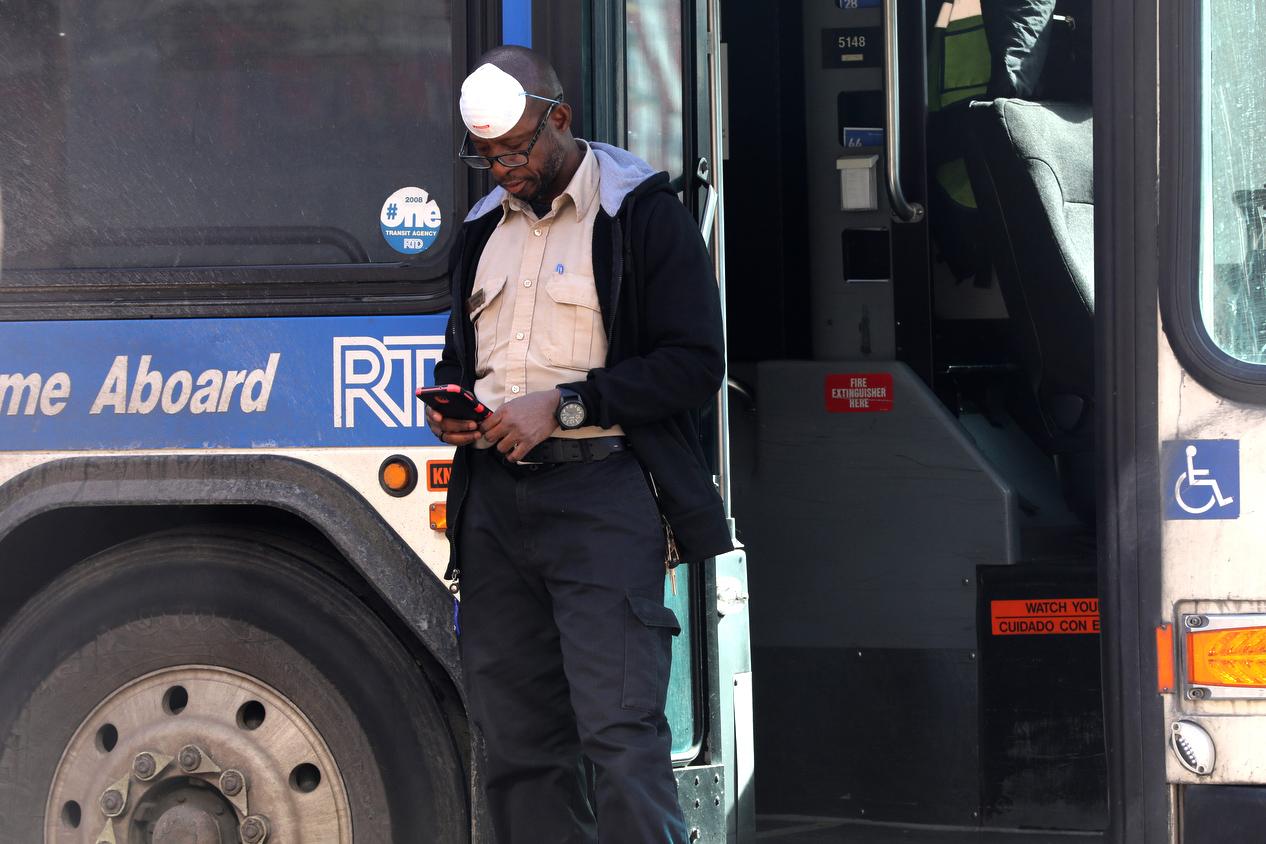
Just weeks after laying them off, the Regional Transportation District is bringing frontline workers — mechanics, bus drivers, and train operators — back on board.
"We should have people back in the seats beginning early next week,” CEO and General Manager Debra Johnson told an RTD committee meeting Thursday.
RTD had planned to cut about 400 workers, both administrative and frontline, in December and January due to a pandemic-induced budget shortfall. A union bulletin from December said 258 union workers were to be cut.
But $200 million in new federal stimulus money will allow the agency to undo that and start looking at how it will restore service routes and times cut during the pandemic.
All full-time operators have been called back, RTD spokeswoman Pauletta Tonilas said via email, with only a few declining because of individual circumstances. RTD and its largest operators union are working to bring back 137 part-time workers too.
Johnson said more details will follow in coming weeks, and that non-union administrative employees who were required to take furlough days “will be made whole.” RTD doesn't plan to restore any administrative workers who were laid off at this time, Tonilas said.
As RTD restores service from the 40 percent cut it made last spring, it will also have to address some long-standing problems with employee retention. For years, prior to the pandemic, the agency was unable to retain drivers — especially new ones — which ultimately led to unreliable service, where buses or trains would not show up for scheduled stops.
The State Auditor investigated the retention issue and presented its findings to legislators on Thursday.
Among the auditor’s recommendations:
- Supervisors should give drivers regular performance feedback, including positive accolades, and standardize exit interviews to track the reasons drivers quit;
- Bus and train operators should receive adequate rest breaks during their shifts;
- The most difficult shifts should be shared equitably across all drivers. Now, those typically fall to the newest recruits, which contributes to turnover.
That last recommendation could cause an issue with the drivers union. Lance Longenbohn, president of the Amalgamated Transit Union-1001, the largest driver’s union, said the root problem is not the rules that protect senior drivers, but the working conditions and mandated overtime.
“We had six-day weeks for years,” he said in an interview. “People were coming here, and they got a flavor of what the environment was like, and they said ‘Yeah, no thanks.’”
The current collective bargaining agreement expires in February. Johnson told legislators she thought a conversation with union leaders on adjusting seniority rules would be “straightforward,” given that it involves worker health and safety.
The state audit also faulted RTD’s own internal audit process, saying that RTD’s auditor lacked independence and that RTD management did not consistently implement the findings of their own audits. Moreover, the state said RTD’s own audits were untimely and often covered unimportant topics.
“There have been no internal audits of retention or turnover to identify root causes and mitigate risks posed by the operator shortage,” the state’s audit reads.
RTD Board Chair Angie Rivera-Malpiede told legislators that the board is revamping how the agency audits itself and how the findings are acted upon.
“This is a huge issue for the RTD board of directors,” she said.
State Rep. Colin Larson, R-Littleton, said he was “cautiously optimistic” that RTD’s new leaders, including both Rivera-Malpiede and Johnson, who both assumed their positions in 2020, will be able to address the state audit’s findings quickly.
“I think we can all agree that there have been a lot of mistakes made in the past,” Larson said.
The state audits RTD every five years. Given its current struggles, state Rep. Rod Bockenfeld, R-Watkins, said he would ask the auditor to take a broader look at the agency’s health in 2023.
“This organization has got some challenges ahead of it,” he said.
RTD agreed with all of the audit’s findings and said it would implement them by the year’s end.
"I do think, as leader of this organization, that we have work to do,” said Johnson, RTD’s top staffer, “which I believe to be straightforward. I’m optimistic.”









